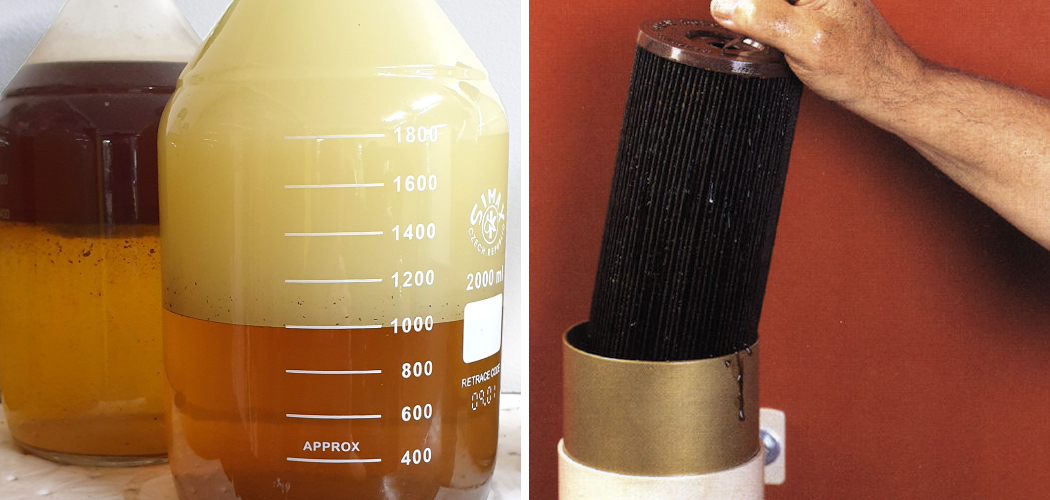The lifeline of any diesel engine is the quality of the fuel coursing through its components. Clean diesel fuel ensures optimal engine performance and is crucial for the longevity of the engine’s intricate parts. Conversely, the use of contaminated diesel fuel can precipitate a host of unwelcome issues — from a noticeable reduction in power output and efficiency to severe engine damage and expensive repair bills.
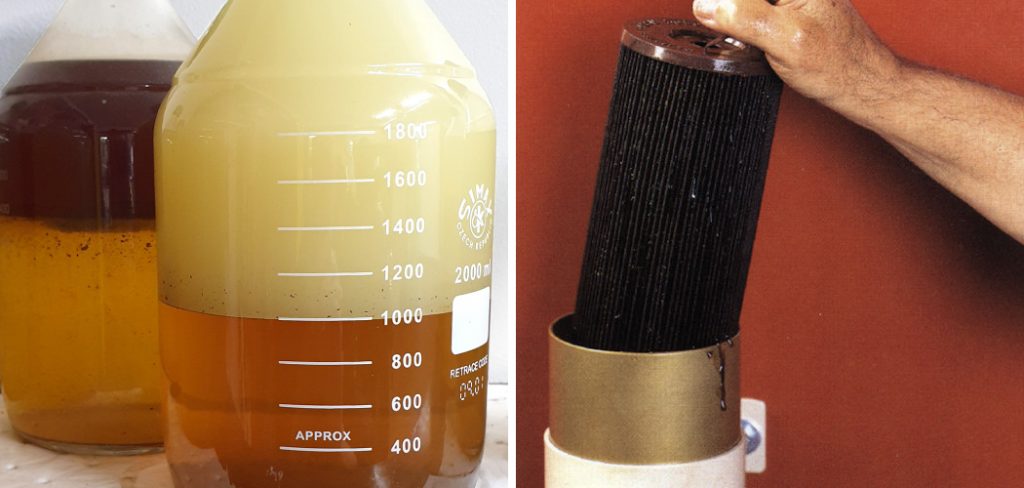
Thus, learning how to fix bad diesel fuel is not just about immediate remediation; it’s about understanding the foundational aspects of fuel care to prevent long-term setbacks. This article aims to equip readers with the knowledge needed to identify, rectify, and ultimately prevent the complications arising from bad diesel fuel, safeguarding the health and performance of their diesel engines.
Identifying Signs of Bad Diesel Fuel
Being vigilant about the quality of diesel fuel in your vehicle’s system is paramount. The common symptoms of fuel contamination are often easily detectable and, when addressed promptly, can prevent further complications. Engine performance issues are one of the first signs to watch for; this includes rough idling, an unexpected loss of power during operation, and unusual knocking sounds from the engine.
These symptoms often suggest that the engine is not running as efficiently as it should be, which could lead to increased fuel consumption—a subtle yet clear indicator that there might be an issue with the diesel fuel.
Another telltale sign is the difficulty starting the engine, indicating that the fuel is not being adequately combusted. This could be due to water in the fuel, poor-quality diesel, or contaminants that interfere with the engine’s normal function. It’s also important to be aware of visible signs of contamination, such as water, algae, or sediment present in diesel fuel. These can be spotted during fuel tank inspection or when replacing fuel filters.

Furthermore, unusual odors emanating from the exhaust can point towards impurities in the fuel—these could result from chemical degradation or microbial infestation within the tank. Regular checks and early detection of these symptoms will go a long way toward maintaining engine health and avoiding how to fix bad diesel fuel as a distress call rather than a manageable routine check-up.
Diesel fuel has a complex chemical composition that is sensitive to environmental factors, which can lead to multiple forms of deterioration over time. One primary form of degradation occurs through oxidation, a chemical reaction where diesel reacts with oxygen, forming gums and sediments that can clog fuel filters and injectors. Polymerization is another related process where fuel molecules react with each other, forming larger molecules that can negatively impact the flow and combustion of the fuel.
Another common issue is water contamination, which can occur due to condensation in storage tanks or from ingress during handling. Water in diesel fuel can cause corrosion in the fuel system, facilitate microbial growth, and reduce lubricity, which can damage engine components.
Microbial growth in the form of algae, bacteria, and fungi happens when water is present within a fuel storage system. These microbes feed on the hydrocarbons in the diesel, multiplying and forming colonies that can create biofilms and sludge. This serious concern can obstruct fuel filters and even lead to fuel spoilage.
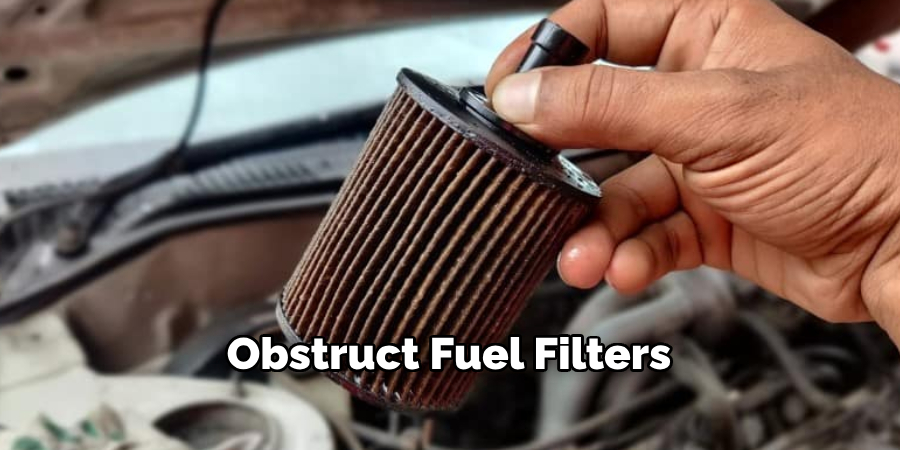
Diesel can also be contaminated with gasoline or other fuels either by accident or due to tampering. Such contamination can significantly alter the combustion properties of diesel, potentially resulting in engine knocking, decreased efficiency, and even mechanical damage.
Improper storage, such as in unclean tanks or in environments that expose diesel to extreme temperatures, can accelerate degradation. Storage systems must be airtight and constructed from materials that do not react chemically with diesel. Regular turnover of stored diesel is also advisable to minimize aging and prevent the accumulation of contaminants.
Severity and Potential Damage
The repercussions of bad diesel fuel on an engine vary considerably depending on the type and degree of contamination. Minor issues can manifest as a marginal dip in performance, while severe cases may lead to catastrophic engine failure. For instance, a small amount of water in the diesel can slightly impair combustion.
Still, larger volumes can cause significant corrosion in the fuel system, resulting in extensive damage to fuel pumps and injectors. Microbial growth, while starting as a minor inconvenience with manageable cleanup, can escalate into a severe blockade, starving the engine of fuel and causing it to stall.
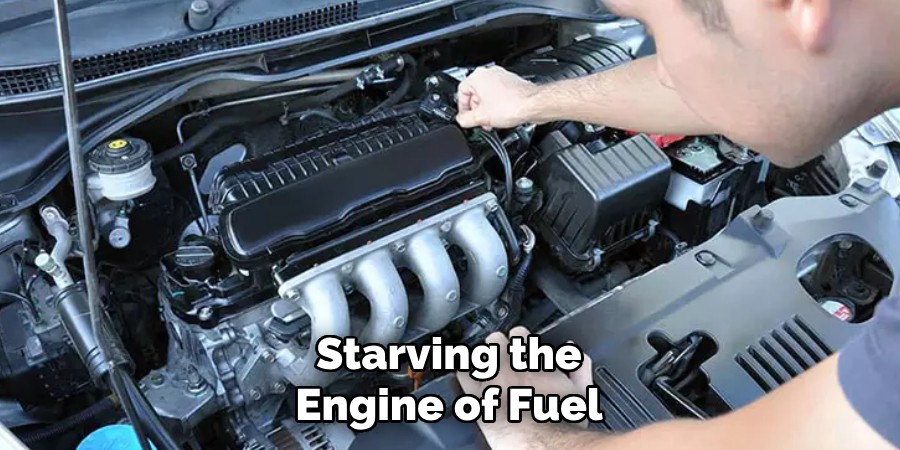
When diesel is contaminated with solid particles like dirt or rust, abrasion and premature wear of the engine’s precision components can occur. The abrasives scour the fine tolerances within fuel injectors, leading to poor spray patterns, less efficient combustion, and power loss. Conversely, chemical contamination, as in the case of diesel adulterated with gasoline, could alter the fuel’s ignition characteristics, leading to detonation, engine knocking, and the potential for long-term engine damage if not rectified swiftly.
The introduction of biodiesel blends also brings about their own issues; while they are more environmentally benign, they are also more prone to oxidation and biological contamination than traditional diesel. This underscores the importance of a proactive stance on fuel quality management lest vehicle owners and operators find themselves grappling with the question of how to fix bad diesel fuel after the onset of engine damage.
Promptly addressing any signs of fuel contamination is not just best practice—it’s essential to responsible vehicle maintenance. Immediate action not only saves on repair costs but also ensures the reliability and longevity of the engine. As the severity of diesel fuel contamination is not always immediately apparent, preventative measures and early intervention remain the most effective strategies to mitigate potential damage.
Safety Precautions
Safety must be one’s utmost priority when handling diesel fuel and any flammable liquids. Working in a well-ventilated area is essential to prevent the build-up of potentially harmful fumes. Always handle diesel away from heat sources, sparks, and open flames since its vapors can ignite. Use appropriate Personal Protective Equipment (PPE); gloves and eye protection should be worn at all times to prevent skin and eye contact with the fuel, which can be irritating and harmful.

Moreover, wear long sleeves, long trousers, and closed-toe footwear to protect your skin from accidental splashes. Remember that safety extends to the storage of fuel, which should be kept in dedicated, labeled, and sealed containers away from living spaces and out of the reach of children. Clear signage and the implementation of a spill-response plan are also crucial for maintaining a safe handling environment.
How to Fix Bad Diesel Fuel: DIY Solutions for Minor Issues
When dealing with minor diesel fuel contamination issues, there are several measures vehicle owners can take before professional intervention becomes necessary.
To address minor water contamination in diesel fuel, a common DIY remedy involves using commercial fuel additives designed specifically to emulsify water within the fuel. These additives help to disperse trapped water throughout the diesel fuel as microscopic droplets. This process allows the engine combustion to effectively burn off the water vapor along with the fuel during normal operation.
Another method to alleviate water contamination is to regularly drain the sediment bowl – a compartment at the bottom of the fuel filter housing. It accumulates water and small particles over time. With caution and the proper tools, draining a small amount of fuel from the sediment bowl can remove the settled water. It is imperative to follow environmental regulations when disposing of contaminated diesel to prevent soil and water pollution.
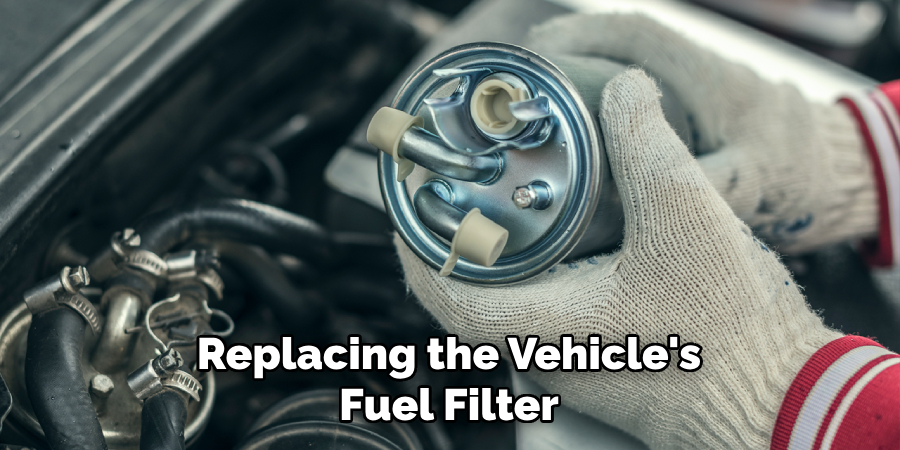
Small amounts of sediment, such as dirt or rust, can often be remedied by replacing the vehicle’s fuel filter. This is typically a straightforward procedure: first, relieve the fuel system pressure according to the vehicle manufacturer’s instructions, then remove and replace the old filter, being careful not to introduce any new contaminants into the system. Old fuel filters should be properly disposed of, as they contain trapped contaminants.
However, it is essential to warn against undertaking more intensive fuel system cleaning without the requisite knowledge and specialized equipment. These tasks can involve intricacies of the vehicle’s fuel system, and improper handling can lead to further damage or even pose personal safety risks. It is always recommended to consult with a professional or refer to the vehicle’s service manual when considering advanced maintenance or repair tasks.
How to Fix Bad Diesel Fuel: Professional Solutions for Major Issues
In scenarios where diesel fuel contamination is extensive or if the engine has already sustained damage, seeking professional assistance is imperative. Trained mechanics can assess the severity of the contamination and offer appropriate, high-quality repair services to rectify the problem.
1. Diagnostic and Repair Services
Professionals begin by conducting a thorough diagnostic to pinpoint the specific cause of the issue. This may involve checking the fuel quality, pressure-testing the fuel system, and using advanced diagnostic tools to detect any irregularities. Once the problem is identified, they are equipped to perform a range of services to restore the vehicle to optimal performance.
2. Fuel System Cleaning and Flushing
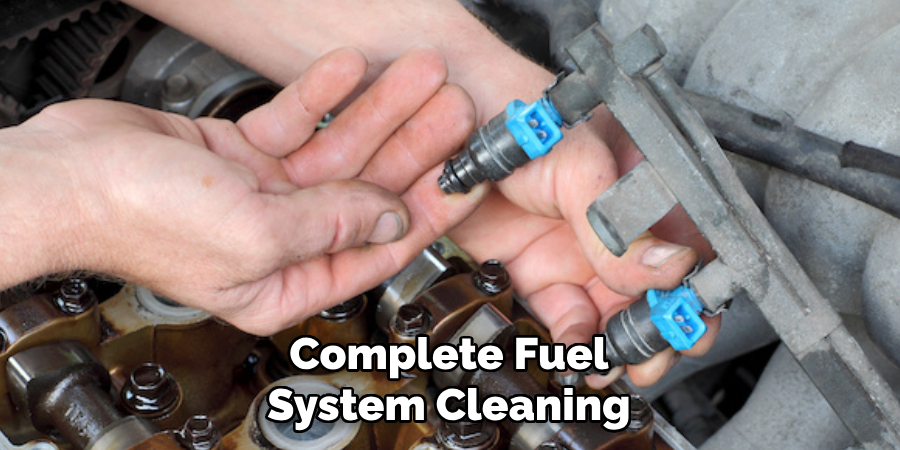
Experts may recommend a complete fuel system cleaning and flushing for significant contamination. This process involves removing all forms of contamination from the fuel tank to the injectors, effectively clearing out water, sediment, and microbial growth that can hamper engine functionality.
3. Fuel Filter Replacement
Replacing the fuel filter is another critical step in mitigating fuel contamination issues. Professionals will adeptly handle the installation of a new filter, ensuring that future fuel flow to the engine is free from impurities.
4. Injector Cleaning or Replacement
Fuel injectors play a pivotal role in engine performance, and when these become clogged or damaged due to bad diesel fuel, expert cleaning or replacement is required. Mechanics are adept at restoring injector functionality through detailed cleaning techniques or replacing them with quality parts.
5. Engine Repairs
Lastly, if the contaminated fuel has caused engine damage, skilled mechanics are equipped to conduct necessary engine repairs. Whether it’s dealing with corrosion, wear, or component failure, professionals will have the expertise and the parts to systematically rectify damages and bring engines back to life.
In conclusion, diesel fuel contamination can have far-reaching implications, and while minor issues may be addressed with DIY fixes, major problems should be entrusted to professionals. Not only do they ensure that the repairs are comprehensive and safe, but by taking proactive, expert care of your vehicle’s fuel system, the longevity and reliability of your engine are also secured.
6. Urgency of Professional Assistance

For vehicle owners confronting severe diesel fuel contamination or even the slightest suspicion of engine damage, it is crucial to seek professional help. Diagnosing and fixing complex issues without the necessary expertise can exacerbate the problem, leading to costly repairs and potential safety hazards. Mechanics possess both the tools and the technical knowledge required for accurately diagnosing issues and performing sophisticated repairs.
7. Thorough Diagnostic Checks
Qualified mechanics start with an exhaustive diagnostic assessment, utilizing state-of-the-art diagnostic equipment to examine the fuel system and detect any anomalies or damages. They perform tests to evaluate the quality of the diesel fuel, pressure-test the fuel lines and system components, and analyze engine codes that can reveal underlying issues.
8. Comprehensive Fuel System Maintenance
During a professional fuel system cleaning and flushing service, mechanics meticulously remove contaminants from every part of the system, from the tank to the fuel lines and injectors. This ensures that both water and particulate matter are eliminated, preventing them from inflicting damage on the engine.
9. Precision Fuel Filter Replacement
The replacement of the fuel filter is a delicate process best left to professionals, who can guarantee that the new filter is installed correctly and that the fuel system remains sterile, free from further contamination.
10. Expert Injector Servicing
Specialized attention is paid to fuel injectors—a vital component of engine performance. If clogged or damaged by impurities in the fuel, a mechanic will either clean them with precision or replace them with high-quality parts, restoring optimal engine efficiency.
11. Meticulous Engine Repairs
In cases where the engine has sustained damage from contaminated fuel, skilled mechanics are capable of performing complex engine repairs. They have access to genuine parts and the expertise to handle issues, including corrosion, component wear, and part failures due to substandard diesel fuel.
In summary, the importance of professional intervention cannot be overstated when it comes to severe diesel fuel contamination and engine damage. By leveraging the full suite of services offered by experienced mechanics, vehicle owners can ensure that their engines are not only repaired securely but are also poised for a future of robust performance.
Preventing Future Issues
To avert the recurrence of diesel fuel contamination, it is essential to adopt proactive measures:
Purchase Fuel from Reputable Sources
Always fill your tank with diesel from trusted and reliable service stations. Renowned providers ensure that their fuel meets quality standards and is less likely to contain harmful contaminants that can impair your vehicle’s performance.
Avoid Storing Fuel for Extended Periods
The longer diesel is stored, the more susceptible it is to degradation and contamination. Try to use fuel as soon as possible after purchase and keep storage time to a minimum. If you must store diesel, use appropriate, clean, and sealed containers, and store them in a cool, dry place to mitigate the risk of contamination.
Use Fuel Additives
Incorporate the use of high-quality fuel additives into your car maintenance routine. These additives are formulated to prevent fuel degradation and inhibit the growth of microbes that can spoil the fuel. They also help maintain the fuel system’s cleanliness and enhance overall engine performance.
Regularly Perform Preventive Maintenance
Preventive maintenance is crucial for the longevity of your vehicle’s fuel system. Regular changes to the fuel filter as part of a scheduled maintenance plan can protect against a build-up of contaminants and particles that could otherwise enter the engine, thereby preserving its efficiency and durability.
Frequently Asked Questions About Diesel Fuel Contamination
Q: How Do I Know if My Diesel Fuel Is Contaminated?
A: Common signs of contaminated diesel fuel include poor engine performance, difficulty starting the engine, unusual noises from the engine, and increased smoke emissions. It is also advisable to look for signs such as the fuel appearing cloudy or having visible particles.
Q: What Should I Do if I Suspect that My Fuel Is Contaminated?
A: If you suspect contamination, stop using the fuel immediately and have your fuel system checked by a professional mechanic. They can perform a comprehensive diagnostic to confirm the presence of contaminants and advise on the appropriate course of action.
Q: Can Diesel Fuel Contamination Damage My Engine?
A: Yes, contaminated diesel fuel can cause severe damage to the engine and its components. It can lead to clogged fuel injectors, corrosion inside the fuel system, and eventual engine wear or failure.
Q: How Often Should I Replace My Fuel Filter?
A: The frequency of replacing your fuel filter can vary based on your vehicle model and how often you use it. Consult your vehicle’s owner’s manual for specific recommendations, but typically it should be changed every 10,000 to 15,000 miles.
Q: Are Fuel Additives Necessary, and How Often Should I Use Them?
A: Fuel additives can be beneficial for maintaining the cleanliness of your fuel system and preventing contamination. The usage frequency depends on the type of additive and the manufacturer’s instructions. Using them with every fill-up or as part of your regular maintenance schedule is often recommended.
Q: Can Regularly Changing My Fuel Filter Prevent Fuel Contamination?
A: While changing your fuel filter regularly can help protect your engine from contaminants already inside the fuel, it does not prevent the initial contamination. The best prevention is to always use high-quality diesel and to follow the recommended storage and handling guidelines.
Q: Is There a Way to Clean Contaminated Diesel Fuel?
A: Cleaning contaminated diesel fuel is often not cost-effective or reliable. The best approach is to avoid using contaminated fuel and to have the fuel system flushed and cleaned by a professional.
Conclusion
In conclusion, understanding how to fix bad diesel fuel is imperative for safeguarding your vehicle’s performance and longevity. Prompt recognition and resolution of fuel contamination can stave off costly engine repairs and ensure ongoing reliability. The value of preventive measures cannot be overstressed; by purchasing high-quality fuel, using additives, and undertaking regular maintenance, you can significantly reduce potential risks.
Professional expertise is not only a recommendation for intricate issues but also a necessity to ensure your engine is in capable hands. We thank you for your attentive consideration of these vital aspects of diesel fuel management. May your proactive efforts in fuel care yield a trouble-free driving experience.

